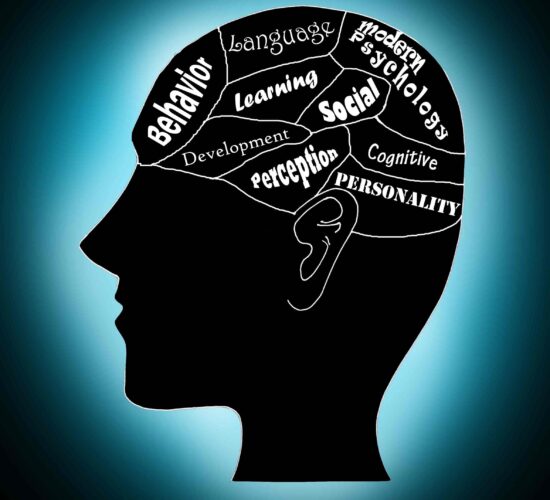
The B.A./B.Sc. program in Psychology at Girijananda Chowdhury University (GCU) is designed to provide students with a comprehensive understanding of the fundamental concepts, theories, and applications of psychology. It is a four-year undergraduate program that equips students with the knowledge and skills necessary for a career in psychology or related fields. Throughout the program, students are exposed to various subfields of psychology, including developmental psychology, organizational psychology, abnormal psychology, cognitive psychology, and personality psychology. They learn about the theoretical foundations of these subfields and explore the practical applications of psychological principles in real world contexts. In addition to the core psychology courses, the B.A./B.Sc. program may also include elective courses that allow students to specialize in specific areas of interest, such as clinical psychology, or social psychology. Overall, the B.A./B.Sc. program in Psychology at GCU offers a comprehensive and engaging curriculum that prepares students for a wide range of career opportunities and provides a solid academic foundation for further studies in psychology.
Class 12th examination or equivalent from any stream.
A degree in psychology opens a wide range of career opportunities in various sectors. Some potential career paths for individuals with a background in psychology:
1. Clinical Psychologist: Clinical psychologists work with individuals experiencing mental health issues, providing assessment, diagnosis, and therapy. They may work in hospitals, mental health clinics, private practice, or other healthcare settings.
2. Counseling Psychologist: Counseling psychologists help individuals navigate personal and emotional challenges, providing guidance and support through counseling sessions.
3. School Psychologist: School psychologists work in educational settings like schools and colleges, focusing on students’ mental health, learning disabilities, and behavioral issues. They collaborate with teachers, parents, and other professionals to support students’ overall well-being and academic success.
4. Researcher/Academic: With further education (such as a Ph.D.), one can pursue a career in research or academia. Researchers and Academics investigate various aspects of human behavior, conduct experiments, contribute to the advancement of psychological knowledge and also teach psychology courses to students at colleges and universities.
5. Human Resources Professional: Psychology graduates often find roles in human resources departments. They apply their understanding of human behavior to areas such as employee recruitment, selection, and training, as well as employee well-being and organizational development.
6. Rehabilitation Specialist: Rehabilitation specialists work with people who have experienced physical or mental disabilities, helping them regain independence and improve their quality of life. They may focus on areas such as vocational rehabilitation, substance abuse counseling, or disability services.
7. Forensic Psychologist: Forensic psychologists apply their knowledge of psychology to the legal and criminal justice system. They may work in areas such as criminal profiling, assessment of offenders, expert testimony in court, and providing therapeutic services to incarcerated individuals.
8. Health Psychologist: Health psychologists focus on the connection between psychological factors and physical health. They work in healthcare settings, promoting health behaviors, helping individuals cope with chronic illnesses, and providing support for patients and their families.
9. Neuropsychologist: Neuropsychologists study the relationship between brain function and behavior. They assess and diagnose individuals with neurological conditions, conduct cognitive assessments, and provide interventions and rehabilitation for individuals with brain injuries or disorders.
10. Educational Psychologist: Educational psychologists focus on the psychological aspects of learning and education. They work with students, teachers, and educational institutions to enhance learning environments, assess learning difficulties, and develop interventions to support academic success.
These career opportunities highlight the diverse applications of psychology across various sectors. It’s important to note that some roles may require additional certifications, licenses, or advanced degrees depending on the specific career path pursued.

The B.A. program in Psychology at Girijananda Chowdhury University (GCU) is designed to provide students with a comprehensive understanding of the fundamental concepts, theories, and applications of psychology. It is a four-year undergraduate program that equips students with the knowledge and skills necessary for a career in psychology or related fields. Throughout the program, students are exposed to various subfields of psychology, including developmental psychology, organizational psychology, abnormal psychology, cognitive psychology, and personality psychology. They learn about the theoretical foundations of these subfields and explore the practical applications of psychological principles in realworld contexts. In addition to the core psychology courses, the B.A. program may also include elective courses that allow students to specialize in specific areas of interest, such as clinical psychology, or social psychology. Overall, the B.A. program in Psychology at GCU offers a comprehensive and engaging curriculum that prepares students for a wide range of career opportunities and provides a solid academic foundation for further studies in psychology.
Class 12th examination or equivalent from any stream
A degree in psychology opens a wide range of career opportunities in various sectors. Some potential career paths for individuals with a background in psychology:
1. Clinical Psychologist: Clinical psychologists work with individuals experiencing mental health issues, providing assessment, diagnosis, and therapy. They may work in hospitals, mental health clinics, private practice, or other healthcare settings.
2. Counseling Psychologist: Counseling psychologists help individuals navigate personal and emotional challenges, providing guidance and support through counseling sessions.
3. School Psychologist: School psychologists work in educational settings like schools and colleges, focusing on students’ mental health, learning disabilities, and behavioral issues. They collaborate with teachers, parents, and other professionals to support students’ overall well-being and academic success.
4. Researcher/Academic: With further education (such as a Ph.D.), one can pursue a career in research or academia. Researchers and Academics investigate various aspects of human behavior, conduct experiments, contribute to the advancement of psychological knowledge and also teach psychology courses to students at colleges and universities.
5. Human Resources Professional: Psychology graduates often find roles in human resources departments. They apply their understanding of human behavior to areas such as employee recruitment, selection, and training, as well as employee well-being and organizational development.
6. Rehabilitation Specialist: Rehabilitation specialists work with people who have experienced physical or mental disabilities, helping them regain independence and improve their quality of life. They may focus on areas such as vocational rehabilitation, substance abuse counseling, or disability services.
7. Forensic Psychologist: Forensic psychologists apply their knowledge of psychology to the legal and criminal justice system. They may work in areas such as criminal profiling, assessment of offenders, expert testimony in court, and providing therapeutic services to incarcerated individuals.
8. Health Psychologist: Health psychologists focus on the connection between psychological factors and physical health. They work in healthcare settings, promoting health behaviors, helping individuals cope with chronic illnesses, and providing support for patients and their families.
9. Neuropsychologist: Neuropsychologists study the relationship between brain function and behavior. They assess and diagnose individuals with neurological conditions, conduct cognitive assessments, and provide interventions and rehabilitation for individuals with brain injuries or disorders.
10. Educational Psychologist: Educational psychologists focus on the psychological aspects of learning and education. They work with students, teachers, and educational institutions to enhance learning environments, assess learning difficulties, and develop interventions to support academic success.
These career opportunities highlight the diverse applications of psychology across various sectors. It’s important to note that some roles may require additional certifications, licenses, or advanced degrees depending on the specific career path pursued.

The B.A./B.Sc. programme in Psychology disseminates knowledge about the crucial aspects of human behavior and mind for students to grasp the intricacies of their critical working.
